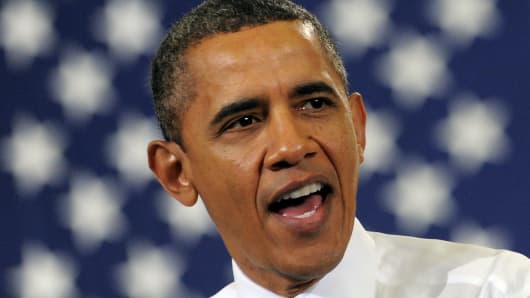Although the economy posted a surprise contraction at the end of 2012, other data, including gradually improving labor and housing markets, give Obama the opportunity to tout a recovery.
Yet the still stuttering recovery and lackluster job creation is forcing the Federal Reserve to funnel $85 billion a month into the economy. Last week, Obama called on Congress to postpone spending cuts that could tip the economy into recession. (Read More: White House Warns Coming Austerity Will Hit Economy Hard)
As a result, observers expect Obama to emphasize job creation, in an attempt to rebut criticism that he's ignored the economy's struggles. Recent polls have shown that jobs and the economy are the top two issues in voters' minds.
Obama will "accentuate the positive," O'Sullivan said. "There's a long way to go, and we don't want to express satisfaction with a 7.9 percent unemployment rate, but he will suggest we're moving in the right direction."
Even as the sequestration threat hangs in the background, some analysts argue that the backdrop of February 2013 is starkly different than that of 2009, when Obama first took office.
In the wake of the financial crisis, the economy was hemorrhaging jobs. Yet last month,157,000 jobs were created.
That level is far below what most economists consider sufficient to absorb both long-term unemployed and new entrants to the workforce.
Still, it allows Obama to claim some bragging rights at the State of the Union, while acknowledging room for improvement.
"Times are tough, but I don't think he's going to come out and say times will remain tough," said Andrew Wilkinson, chief economic strategist at Miller Tabak. The economy is arguably in the best shape of his incumbency, the analyst said, adding that "the outlook is bright, and he wants to maintain the momentum."
That said, virtually no one expects investors to react strongly to the speech.
"Realistically, when we come in on Wednesday morning, the markets won't be trading on the State of the Union address," said O'Sullivan.






